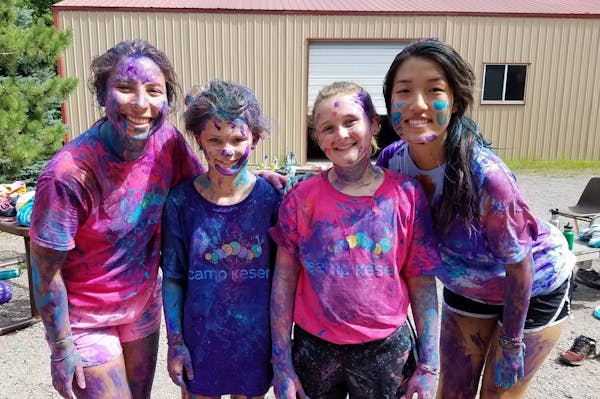MIAMI – At first glance, the menu item depicts a typical bowl of hearty chicken soup.
For chef Carlos Garcia at Obra Kitchen Table in Miami, it's much more than that.
As steam overflows from the boiling pot of chicken broth, Garcia dumps in some sofrito sauce, tender shredded chicken, corn kernels, chopped onions and a variety of seasonal green vegetables. The Venezuelan chef tops it off with a pinch of sea salt and a sprinkle of chives.
The aroma wafts through the air — and then it hits him.
"The faces of the starving children and abuelos in my country. That's what floods my mind every time," Garcia said in Spanish as he assembled two mini arepas to lean against the ceramic bowl. "The only thing that makes me feel better is knowing that now people in Miami can help, too."
After the political unrest and hunger crisis in his native Caracas, Garcia — who owns Alto, a world-renowned restaurant in Venezuela's capital — established U.S. residency and in May opened Obra on Miami's bay to help offset the financial unpredictability.
Though Obra's menu features dozens of Latin American dishes with unique twists, it's the ordinary sopa de pollo (chicken soup) that's making the biggest impact in a country transitioning from strongman President Hugo Chávez to another commander, Nicolas Maduro, whose constitutional changes threaten to install a full-blown dictatorship.
"Each time someone buys the soup, a portion of that sale directly benefits 250 starving schoolchildren and teachers, along with 100 frail, elderly people at nursing homes in the slums of Caracas," Garcia said. "That soup, though here in Miami, is feeding dying people in Venezuela through our foundation Barriga Llena, Corazon Contento [full belly, happy heart] at Alto and Obra."
Related
Start your week Inspired

According to a recent study conducted by the Central University of Venezuela and two other universities, up to 90 percent of Venezuelans live in poverty; Venezuelans have lost an average of 11 kilos, or about 24 pounds due to the food shortages.
Last year, the New York Times reported that 11,446 children under the age of 1 had died in 2016 — a 30 percent increase in one year.
"When you get sick, usually what the doctor prescribes you is a soup," Garcia said. "In addition, it has all the liquid nutrients, it's easy to digest, it is healthy, economical and that is why it is still the best option."
How does it work from Miami? he is asked.
"We actually buy products and ship it over to Caracas. It's actually better to do it that way than to send money, because over there the prices are so high and nothing is available."
Getting the food to the school is not easy in hilly Caracas. Sweat cascades down the foreheads of two disheveled teachers as they trek to their meeting point — about one mile from the gate. That's as far as the trucks can go.
Twice a day, hundreds of children gather inside two humble, 50-square-foot rooms at the school. Their bowls of soup are placed in front of them on the dusty, concrete floor. Before this moment, many of the children are despondent and dejected.
"But then their eyes light up," said teacher Subalia Escalona. "They completely change."
In unison, they clench their spoons as smiles take over their faces. And so the prayer — in Spanish — begins. With each sentence, their voice escalates in volume.
"Thank you, Father, for these nutrients. Bless the hands that made it possible. Give bread to the hungry and hunger to those that have bread. Amen."





